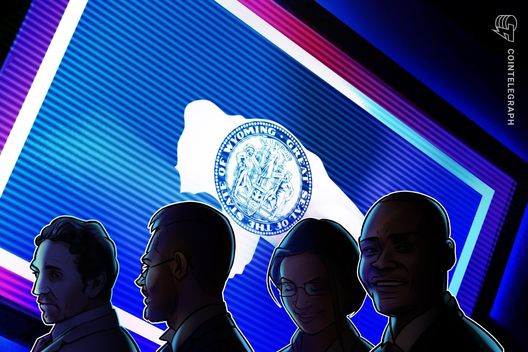

The Wyoming Blockchain Symposium, held August 18-21, 2025, has become a focal point for discussions on the future of cryptocurrency regulation in the United States. Industry leaders and policymakers at the event emphasized the urgent need for the U.S. to establish clear and effective crypto regulations to maintain its competitive edge in the global digital asset landscape.
Several key themes emerged from the symposium. One major topic was the necessity for regulatory clarity to foster innovation and provide certainty for investors and developers. Federal Reserve Vice Chair for Supervision Michelle Bowman acknowledged the "unclear standards, conflicting guidance, and inconsistent interpretations" that have created friction between regulators and banks serving crypto clients. She announced that the Fed had eliminated "reputational risk" considerations from bank supervision in June, a move intended to encourage financial institutions to work with legitimate digital asset companies. Bowman stressed that customer decisions should be the responsibility of bank management, not supervisory agencies.
SEC Chair Paul Atkins has also signaled a shift towards a more accommodating approach to crypto assets. At the symposium, Atkins announced the launch of the President's Digital Asset Group, tasked with creating new rules for digital assets that balance investor protection with innovation. Atkins stated that the SEC would provide tailored exemptions, safe harbors, and new disclosure rules for crypto companies, moving away from the one-size-fits-all regulations of the past. He also expressed his belief that very few tokens should be classified as securities, suggesting a more flexible approach to activities like initial coin offerings, airdrops, and decentralized app development.
Senator Tim Scott (R-S.C.), Chairman of the Senate Banking Committee, discussed his legislative efforts to make the U.S. the "crypto capital of the world". Following the passage of the GENIUS Act, which establishes a federal framework for payment stablecoin activities, Scott plans to推进 digital asset market structure legislation through the Senate Banking Committee in September. He emphasized the importance of creating a competitive environment with "good rules of the road" to attract more capital to the U.S.
However, challenges remain. One concern raised at the symposium involves a potential loophole in the GENIUS Act regarding the payment of interest on stablecoin accounts. While the Act prohibits stablecoin issuers from paying interest to holders, it does not prevent crypto exchanges from doing so, potentially undermining the Act's উদ্দেশ্য. The banking industry has recommended that Congress address this loophole through an amendment to the digital asset market structure legislation currently under consideration.
Another challenge is reconciling the anonymity of crypto transactions with anti-money laundering (AML) requirements. The SEC's Crypto Task Force is exploring regulatory frameworks that use cryptographic proofs instead of personal data to preserve pseudonymity for users while meeting legal standards.
The symposium highlighted that the U.S. is at a critical juncture in shaping its approach to crypto regulation. While progress is being made with the passage of the GENIUS Act and the SEC's "Project Crypto" initiative, further legislative and regulatory efforts are needed to provide clarity, promote innovation, and protect consumers. Failure to do so risks ceding leadership in the digital asset space to other countries with more well-defined regulatory frameworks.